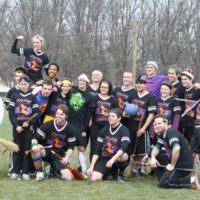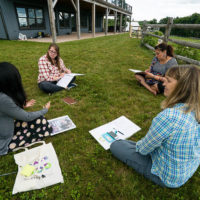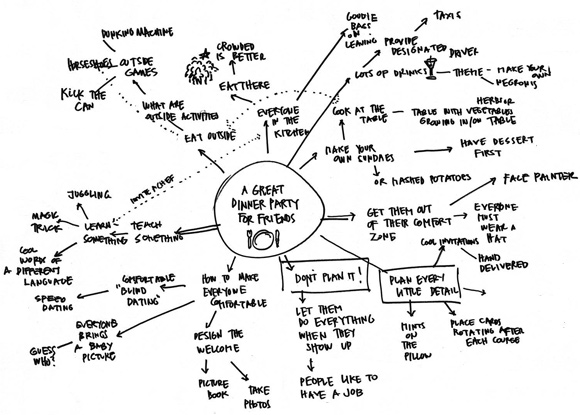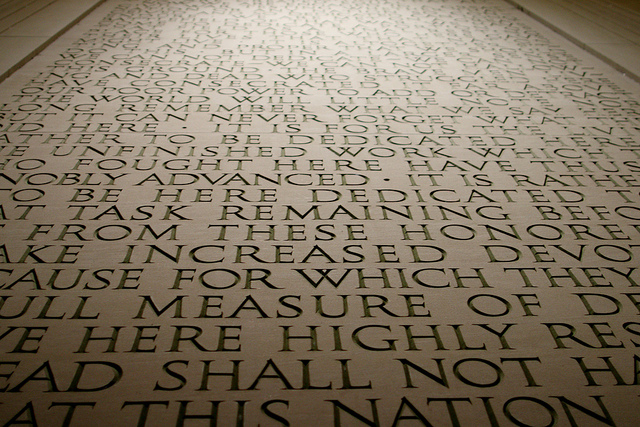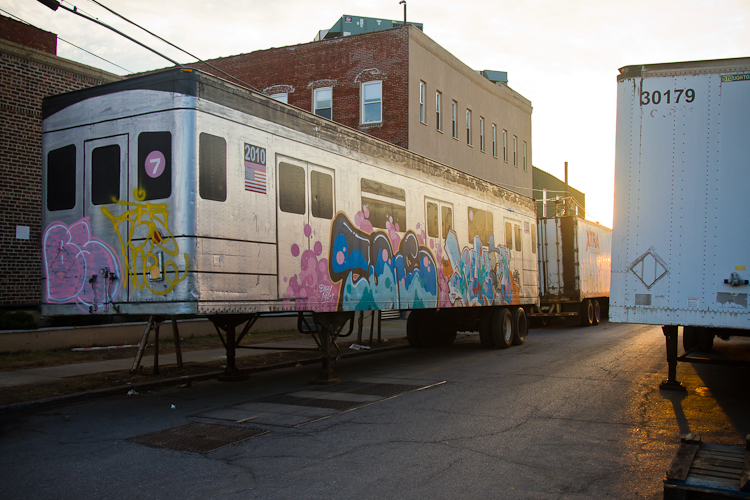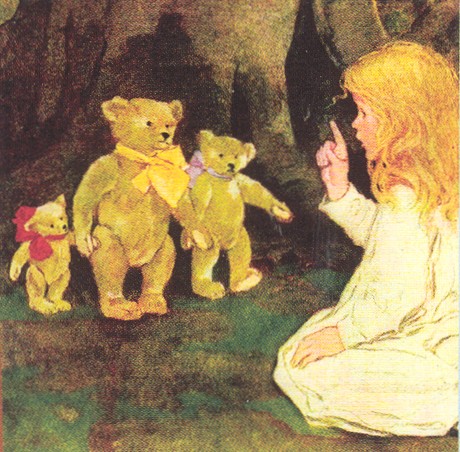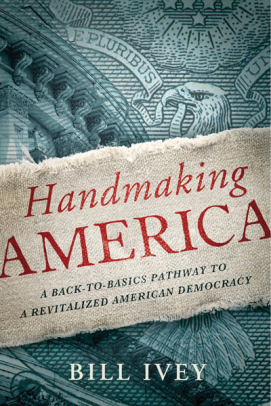Jaclyn Roessel reflects on the first time she felt like a part of a community, when she was 12 years old and had her Kinaaldá ceremony, in which she became a woman and felt the kinship of not only her nuclear family, but a larger tapestry of community members. … [Read more...]
A Real Community Will Stretch You
What are the qualities of a rubber band? Flexibility: the ability to bend without breaking. Clinnesha Sibley shares a reflection on the first time she felt the power of community as a teacher at Piney Woods School, and shares a list of guidelines for how to find community. A spiritual leader once gave me a rubber band to wear on my wrist to remind me that God will constantly stretch me toward my purpose. When I went to work for The Piney Woods School in Mississippi, I wore a rubber band. Whenever I felt that I was being tested, I tugged on it. … [Read more...]
Finding Magic in Community
Sometimes joining a new community can open up new, magical worlds that you never imagined were possible. This was Quentin Turner’s experience when he gained a new set of friends, teammates and community through Muggle Quidditch. It begins in 2010, during the spring of my third year in college at Eastern Michigan University. Over the holiday break, I was visiting with one of my best friends who just returned home to Detroit from his East Coast liberal arts school. He told me that he had begun playing a weird sport that was getting big in the … [Read more...]
Welcome to the Community
We are all a part of communities of many different shapes and sizes. Large or small, local to our region or universal, communities offer connection, purpose and a sense of belonging to a group larger than our individual selves. Creative Community Fellows is a nine-month fellowship for cultural entrepreneurs working uniquely at the intersection of culture and community. When Fellows apply to the program, we don’t define what community means. Rather, we ask that they tell us what community means in their context - whether it is geographic, … [Read more...]
Failure or Success: What are we more afraid of? A Leading Innovation in Arts & Culture Conversation
We’ve just wrapped our first Massively Open Online Course (MOOC) Leading Innovation in Arts and Culture. This unique course was created by Dave Owens at Vanderbilt University and customized for the arts and culture sector by National Arts Strategies. This eight-week course, offered on the Coursera platform, brought more than 9,000 artists, arts administrators and cultural entrepreneurs from around the world together to discuss the specific constraints to creating good ideas in our field and to build strategies for successful innovation. This … [Read more...]
Julie Rada & Chris Webb: A Conversation
This week we will be featuring conversations with leaders working in communities. Julie Rada is a contemporary performance director using art to create enrichment opportunities for prisoners in Arizona. Chris Webb, originally from Cleveland, Ohio is currently working as a poet, actor and public speaker in LA. Both are Creative Community Fellows. The following is a recounting of what they learned from their conversation. City with a C By Julie Rada I hold an image: of artists and neighbors painting their anger and resentment into a wall … [Read more...]
Arts as an Engine of Unrest
Or, How the Arts Ruined a Perfectly Good Childhood
Art makes people happy. Lots of individuals and institutions are now looking at proving and understanding this link. To some it’s the holy grail of arts impact. Who doesn't want to feel good? Well… I don’t. Or, at least I don’t think that’s where the real power of the arts lies. For me, the arts matter because of their ability to do just the opposite. I was raised in a tiny farming community in Northern Arkansas. We didn’t have a symphony. We didn’t have a museum. We didn’t have much “Art” to speak of. If forced to name the town’s cultural … [Read more...]
Reading List: Hacks
This post appears as a the first of an occasional series of tricks and tips you may find useful in tackling your daily challenges. Does your team ever get stuck in a creativity rut? Do you think you need a license to be creative, especially if this isn’t part of your job title or job description? Do you need a shockabuku? Even the best teams get stuck once in a while, but you don’t have to be on the artistic side of the organization to be creative. What you do need to do is practice. In this HBR blog post, brothers Tom and David Kelley of … [Read more...]
Change Leadership Lessons in the Gettysburg Address
At the sesquicentennial of Abraham Lincoln's Gettysburg Address, Marketplace spoke with Nancy Koehn (Harvard Business School professor and faculty for the NAS Chief Executive Program) about leadership lessons in the iconic speech. Koehn notes elements of the address that make it a great example of effective change leadership, including succinctness, framing, acknowledging the stakes and, perhaps most importantly, candidness about costs in service of a larger mission (she cites Howard Schultz's response to a Starbucks shareholder's concerns … [Read more...]
Why the Lean Start-Up Changes Everything (…or does it?)
Steve Blank wrote an interesting article in the May Harvard Business Review on “Why the Lean Start-Up Changes Everything.” The lean start-up refers to a methodology (more on that shortly) rather than an organization of a specific structure or size. While its roots are in the technology field, the methodology has interesting implications for arts and culture organizations. This approach focuses on three key things. Rather than crafting an elaborate business plan, entrepreneurs use a conceptual framework known as the business … [Read more...]
Goldilocks and the Three Bowls of Data
Barring residence under a rock or an other-worldly state of bliss, it is unlikely that you have escaped the phenomenon of “big data.” What is big data? Everyone knows that, right? Not so much. Gartner offers a helpful definition: Big data [are] high-volume, high-velocity and high-variety information assets that demand cost-effective, innovative forms of information processing for enhanced insight and decision making. Good! Three very important dimensions, but we’re not quite there. SAS boils it down a bit: Big data is a popular term used … [Read more...]
Training ourselves to see the invisible gorilla
Earlier this week, NPR ran a story about some interesting research into the concept of inattential blindness that I think is incredibly instructive for arts leaders. The study went like this: an image of a man in a gorilla suit was superimposed upon a series of slides that radiologists typically use to look for cancer (see the image to the left). A group of radiologists were then asked to review the slides for cancerous nodules. The result? 83% did not see the gorilla. “When you ask someone to perform a challenging task, without … [Read more...]
Handmaking America
National Arts Strategies is an apolitical organization, so this review about an unashamedly liberal and progressive book is a little off the beaten track for us. But I think that every arts leader in America, whatever your political leanings, should read Bill Ivey’s latest offering: Handmaking America. In this beautifully written revisitation to the roots of progressivism in America, Ivey reminds us all of the extraordinary value that arts and culture have in shaping a meaningful personal and civic life, and the role we all could play in … [Read more...]
Deal Making 2.0: A Guide to Complex Negotiations
"Deal Making 2.0: A Guide to Complex Negotiations" David A. Lax and James K. Sebenius Harvard Business Review, November 2012 Negotiations can be like puzzles – with pieces that fit together in one way to achieve a coherent image. I think of them as coalition building where the sequence and psychology is important but there may be several ways to achieve a positive end result. In this HBR article, the authors lay out a sequence of events to manage complex and even historically difficult negotiations using as an example the Pacific Maritime … [Read more...]
On leadership: “What to Ask the Person in the Mirror,” Robert Kaplan
Professor Robert S. Kaplan (Harvard Business School) has written a book on leadership, management and managing oneself that is readable, practical and highly actionable. It is based on an earlier article by the same name that appeared in the Harvard Business Review. While written for a general audience, the content is equally applicable to those running nonprofit organizations, especially larger ones. Seekers won't find mystical language or anything revelatory in terms of conceptual frameworks. Rather, the emphases include the criticality of … [Read more...]


